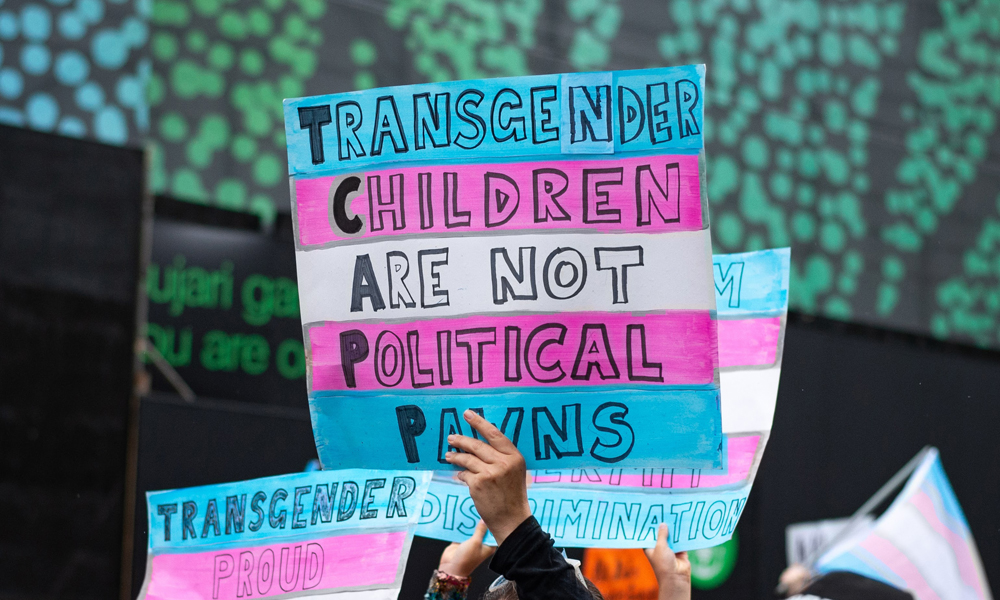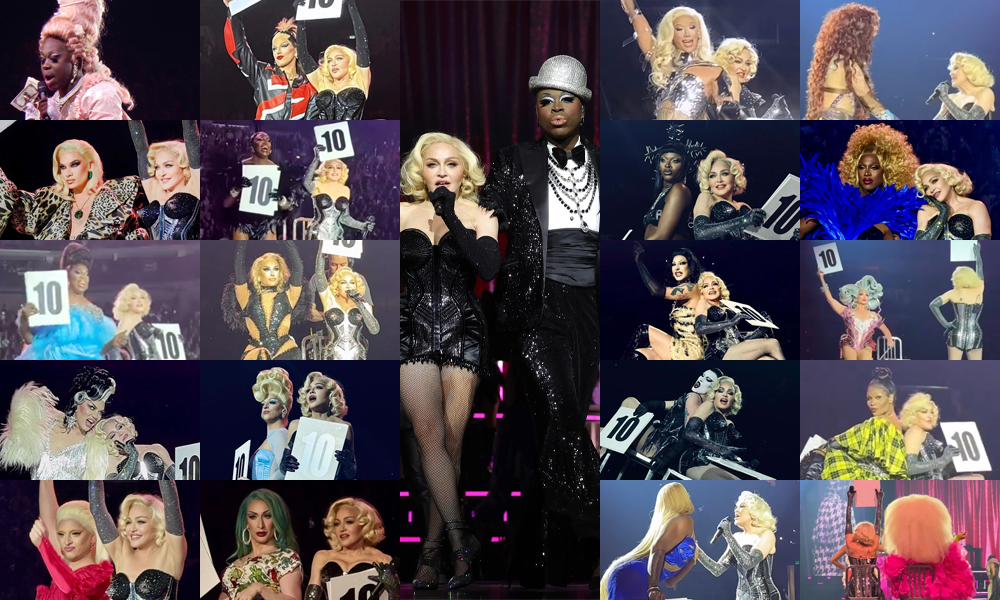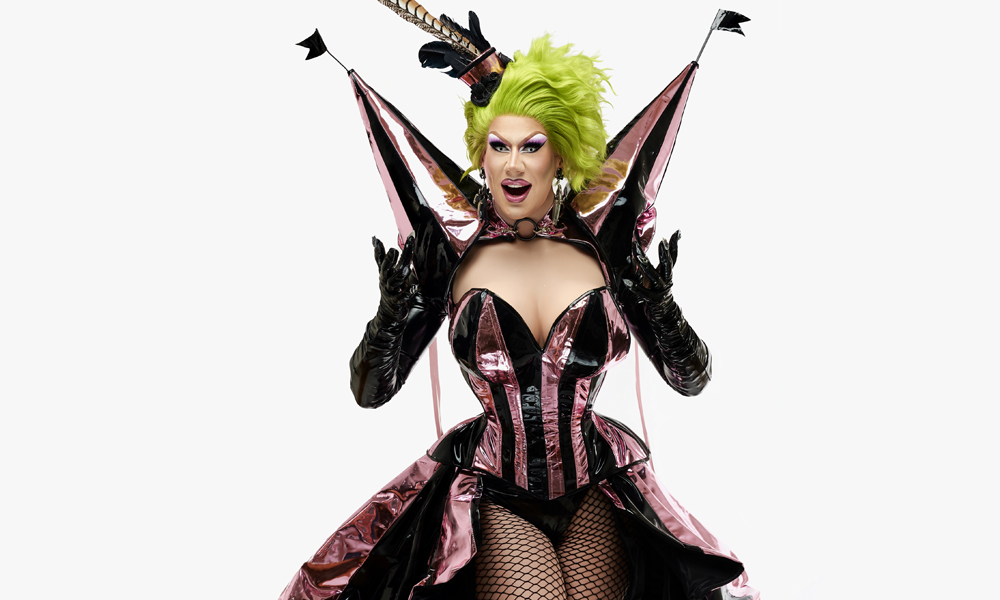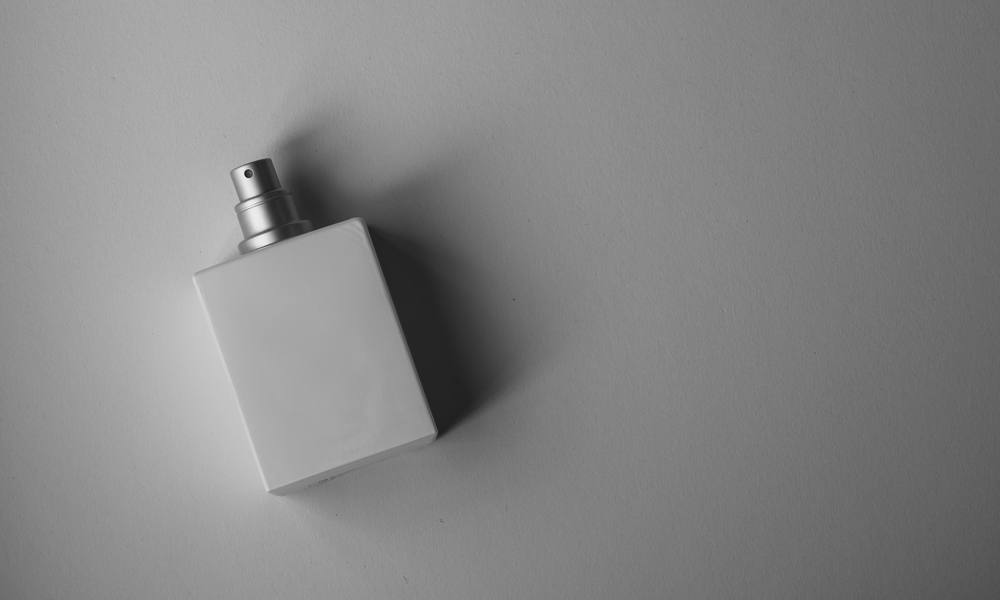The answer is pretty crucial, especially when 2SLGBTQ+ lives are being used as weapons to make a point…
By Paul Gallant
Over the years, I have adopted a question that I regularly ask after consuming certain kinds of national and international news: Is there a way to escape from the culture wars, that painful polarization of left and right, especially where LGBTQ2S+ lives are being used as weapons to make a point?
Firstly, is there a way to communicate with people we don’t agree with without treating (most of them) like they’re evil or crazy? Because it seems to me that most people in the world aren’t evil or crazy, and that talking things out could lead to mutual understanding and – God forbid – solutions to real problems.
Secondly, is there a way to disagree with people on “our side” without seeming like a traitor or a weak link in the line of defence? I’m a pretty progressive person who thinks better community and government interventions can improve the world, but sometimes I’m afraid of pointing out failures in progressive policy or programs for fear I’ll be labelled a reactionary. When I apply the feelings I have to people who sit on other parts of the political spectrum, I worry that when others are afraid to speak about their low-key doubts about things, or are belittled for doing so, they’ll start climbing down rabbit holes, their feelings of discomfort and confusion morphing into paranoia and delusion. And that we’ll lose helpful suggestions that get withdrawn or buried in piles of conspiracy theories.
The easiest answer is probably: stop consuming social media unless it’s photos of the kids, pets, parties and travels of people we actually know. There is something about online interaction which promotes distrust, callousness and hyperbole. Get off the internet and talk to real people.
But miscommunication and missed opportunities can happen anywhere. I was visiting a friend’s home recently, in the run-up to September’s 1 Million March 4 Children, which was sold to its participants as a demonstration to “defend children from LGBT indoctrination in schools.” The dad of the family I was visiting – whom I have known for years to be a pretty open-minded gay-friendly straight guy in his 50s – hadn’t read up on the event at all. From what his co-workers had told him, he thought that the protest was by parents who broadly wanted to have more involvement in school curriculums and that, even if there were some transphobic and homophobic people taking part in the demonstration (which he didn’t approve of), it didn’t mean the overall protest itself was hateful – parents should be more involved in their child’s education.
His early 20s university-attending daughter, rightfully appalled that her father had not looked deeper into what the demonstration was really about, immediately started berating him that he was transphobic, supported hate speech and was, in part, responsible for violence against trans students. Dad wondered aloud if there was something valid about the protesters’ claims if his (admittedly annoying) wondering triggered such vehement defensiveness. The argument got so heated that the mom had to interrupt and insist that everybody hit the sack.
This, it seemed to me, was a lost opportunity to bring a naive middle-aged white man onside, rather than leaving him annoyed and confused about what was wrong with his point of view. He’s not going to be an enemy, but at this point, he’s not going to be an ally. Though his daughter was, to my mind, on the right side, and I admired her passion, her tactics left something to be desired.
The emotional temperature got too high too fast to get to the facts we should have been discussing: What were the organizers claiming the protest was about, and what were the protesters themselves attacking, and why were the organizers being so misleading? What exactly are the school policies and curriculums in question (they certainly were not the “indoctrination” that the protesters were claiming they were; the demonstration sounds like a response to a vague fear, not reality)? What is the right balance between parental involvement in their child’s education and the privacy and safety of young people? Why is it the school’s role, and not the parents’, to pass on beliefs about gender and sexuality that the parents wish for their children to have? Why is it the school’s role to tell parents about their child’s gender and sexuality: if you were a good nurturing parent, shouldn’t you know and be having those conversations yourself?
Getting to these questions – and many others that will help determine whether our country becomes a more inclusive place where citizens with different backgrounds and values understand and broadly agree on what inclusivity means – will, I think, require abandoning certain overblown responses to people who aren’t as invested in or knowledgeable about LGBTQ2S+ issues. That means, unless the conversation has really gotten out of control, setting aside reflexive assertions that the person on the other side of the argument is transphobic or homophobic. People shut down when they’re labelled, so I think it’s better to keep talking with people who are on the fence. Of course, institutions and people in power who hold reprehensible opinions should be held to account for them. But your family member or neighbour might just need a few nudges over the course of your relationship with them – few people change their minds completely in a single conversation.
One of the ugliest parts of the current culture wars is the innocent casualties. Not just the trans and non-binary kids who are being demonized and targeted; they’re struggling with their gender and we’re going to treat them like a contagion? What strikes me about people who are opposed to not just support of, but acknowledgment of, LGBTQ2S+ humans and especially young people, is how foul and hateful they’re prepared to be in front of children and young people – the very group they’re supposedly trying to protect. Even if you think drag queens are a bad influence on kids (I don’t, unless they’re being raunchy), aren’t hateful words and seething anger much worse?
Learning to control one’s temper is one of the most important passages to adulthood. Even the anger in protests needs to have some strategy giving it shape. Anger can get people out in the streets to fight back against racist or homophobic attacks, like the protests against Toronto’s bathhouse raids in the early 1980s. But it’s the numbers of participants, the compelling messages and the personal testimonies that change people’s minds. Gay men who were being harassed by the police were basically saying to the straight world, “Whatever gay sex is for us, it’s none of your business and doesn’t affect you, so leave us alone.” The argument will be different for kids in classrooms, but there has to be one that doesn’t involve people screaming at each other.
These days so many people seem to want to bear their raw emotion to the world, but that’s not going to get us anywhere. We need a sense of proportion; in 2021, about 0.33 per cent of Canadians aged 15 and older identified as trans or non-binary, about 101,000 people. In schools, we’re talking about a few thousand children across the country, a few hundred who may need medical interventions at a young age. This is a very important issue for these kids themselves – and not an important issue at all for pretty much everyone else.
Treating kids right, and with respect, should hardly be a polarizing issue. We’ve got to find a language to prevent it from being one.
PAUL GALLANT is a Toronto-based writer and editor who writes about travel, innovation, city building, social issues (particularly LGBT issues) and business for a variety of national and international publications. He’s done time as lead editor at the loop magazine in Vancouver as well as Xtra and fab in Toronto. His debut novel, Still More Stubborn Stars, published by Acorn Press, is out now.






POST A COMMENT